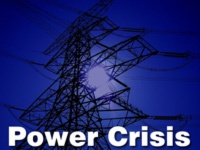 File photo
File photo
The Ghana Employers’ Association (GEA) has urged government to include in the 2016 budget appropriate measures to halt the frequent electricity load shedding.
It said with electricity demand expanding at between 8 and 10 per cent yearly, costing the nation between 320 million and 924 million dollars, the 2016 budget should outline suitable solutions to reverse the power shortages.
The demand for energy was among four submissions the GEA made at a stakeholders consultative meeting on the 2016 budget held last Thursday, at the Best Western Premier, Accra Airport Hotel.
The other proposals include policies against counterfeit and illicit trade, high commercial bank interest rates and the road infrastructure.
Personalities present at the discussions included Mr Ato Forson, Deputy Minister of Finance; Dr Edward Larbi-Siaw, Tax Policy Advisor, Ministry of Finance; Dr Mensah Bonsu, National Development Planning Commission; Mr Seidu Kotoma, Deputy Controller and Accountant General; and Alhaji Inusah Fuseini, Minister of Roads and Highways.
The GEA said government should allocate more resources to the energy sector for long term investment whiles supporting businesses that generate biogas and biomass with flexible loans to invest in in-house power generation.
There is also the need for government to diversify the energy portfolio, incorporate renewable sources of energy and reduce the dependence on the unreliable gas supply from Nigeria.
On counterfeit and illicit trade, the GEA said this had prevented legitimate businesses from competing with pirates, as the theft of intellectual property through counterfeiting is stifling innovation and creativity.
The GEA said the growing concern of counterfeiting had threatened several manufacturers and distributors, especially in the pharmaceuticals and the textile and garment industries.
It said the 2016 budget should thus take into consideration measures to help equip the border regulatory bodies with the needed logistics to halt the illicit trade; procurement laws should be clearly specified to prohibit the supply of counterfeits.
The GEA said the nation’s current average lending rate at 33.85 per cent, is among the highest Africa’s average rate, and government’s borrowing to finance its budget deficits has been one of the major factors leading to the high levels of interest rates in the country.
It said the 2016 budget should also consider the establishment of an appropriate task force to regularly assess the interest rate situation; monitor commercial banks and regulate to ensure that interest rates fall within an acceptable range for businesses to borrow; government should reduce borrowing locally to free up capital for the private sector.
On the road sector, the GEA said the absence of railways had led to the over reliance on roads many of which have deteriorated and needed rehabilitation to reduce the cost of production.
It said the 2016 budget should complete the rehabilitation and construction of all major trunk roads and feeder roads; and government should encourage more public-private partnership in the sector.
Mr Patrick Numo, Director of Budget at the Ministry of Finance, welcomed the stakeholders saying such discussions are critical to national development.
Various contributions came from the Association of Road Contractors, Chamber of Mines, ISODEC, SEND-Ghana, African Centre for Economic Policy, UNICEF, GNAT and Penplusbytes.